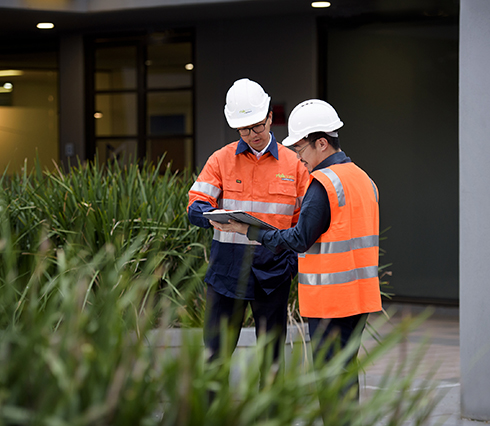Expert Soil Classification Melbourne Services Help You Stay EPA Compliant
There was a time when one could carry out excavation during construction and then transport and dump the soil waste elsewhere. Today the scenario is entirely different. You simply cannot transport and dump soil waste anywhere and in any way you please. Contractors and property developers must adhere to EPA Waste Classification Guideline 2014 for proper soil waste disposal. Soil waste needs to be classified and this influences how the waste soil is disposed of. Soil classification Melbourne services come into play to help in soil sampling, testing and classification reports compliant with EPA guidelines.
Classification Determines How Soil Waste Can Be Transported And Disposed Of
A thorough test is necessary where soil waste is generated. The test determines, among other things, as to whether the soil has any contaminant that would pose environmental or health hazards. It can be classified as hazardous waste or non-hazardous waste. The classification determines disposal such as in landfill and it can influence the method of transport too. Soil classifications can fall under various categories:
- Virgin excavated natural soil
- General solid waste
- Excavated natural material
- Hazardous waste that contains contaminants toxic to the soil, water, and life
- Asbestos waste
Extensive Tests And Procedures
If it is only excavated soil that must be tested and classified the task is straightforward. The usual way of sampling is to use augers and excavators that collect samples at various points from the stockpile. It is simple enough if the soil to be tested is just excavated the soil. However, if other construction activities are in progress then it is likely that such excavated and stockpiled soil could lie on top of other wastes and could also have inclusions of cement, concrete or other materials as well as contaminated water that has seeped into the soil, affecting its original nature. These and other factors affect the way soil classification Melbourne services test the soil samples. It takes time for exhaustive testing for all known contaminants endemic to the area as well as human-generated waste that can mix with the soil waste and such waste may or may not be visible. If such classification needs to be carried out in industrial zones, especially zones where chemicals are processed then classification needs to be rigid and rigorous. Contaminants may exceed SCC2/TCLP2 criteria. Soil waste may not be absolutely solid since it may have liquids in it that make it a semisolid or liquid waste. This physical appearance and chemical parameters all come into play for testing and classification as well as the transport to the disposal facility.
Assess Control Assure welcomes you to take benefit of its soil classification Melbourne services and stay EPA compliant.
Assess Control Assure specializes in safety and risk-related services covering asbestos and soil waste classification and disposal in and around Melbourne.




Comments
Post a Comment